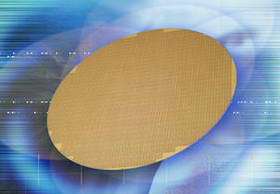Elpida Begins Production of DDR2 SDRAM Using 90 nm Process Technology

Advanced Technology Contributes to Increased Capacity and Smaller Device Size
Elpida Memory, Inc., Japan's leading global supplier of Dynamic Random Access Memory (DRAM), today announced that it has started production of DDR2 SDRAM using advanced 90 nm process technology at Hiroshima Elpida's E300 facility. This state-of-the-art 90 nm process will enable Elpida to produce 512 Megabit DDR2 SDRAM devices, for example, with an incredibly small chip size of 69.9 mm2, allowing more devices per wafer for increased unit output.
"Elpida continuously leverages its strength in manufacturing and process technology to create substantial improvements in our capacity and production yield of high-performance DRAM products," said Yukio Sakamoto, president and CEO of Elpida Memory. "Our ability to begin DDR2 SDRAM production at 90 nm will help Elpida meet growing industry demand for high-density, high-speed DRAM such as DDR2-533 and DDR2-667."
Elpida is a leading supplier of DDR2 SDRAM products which represent the most advanced industry-standard DRAM architecture. Until now, Elpida has been producing its 512 Megabit density devices using its 100 nm process. The latest advancement to 90 nm will enable Elpida to offer the most advanced, high-performance DRAM products in response to requirements demanded by the server and high-end PC markets.
Sample products are scheduled to become available in June and volume production based on market demand is anticipated in the 2nd quarter of the fiscal year ending March 31, 2006.
















